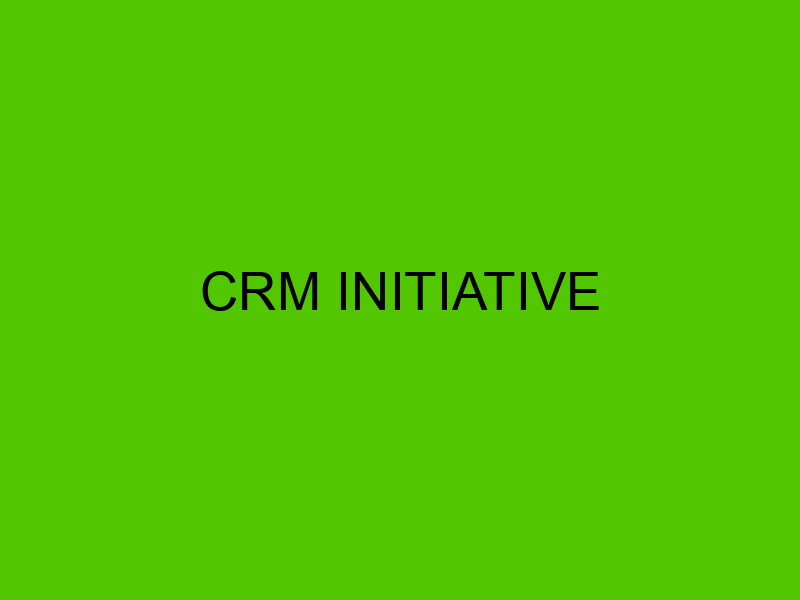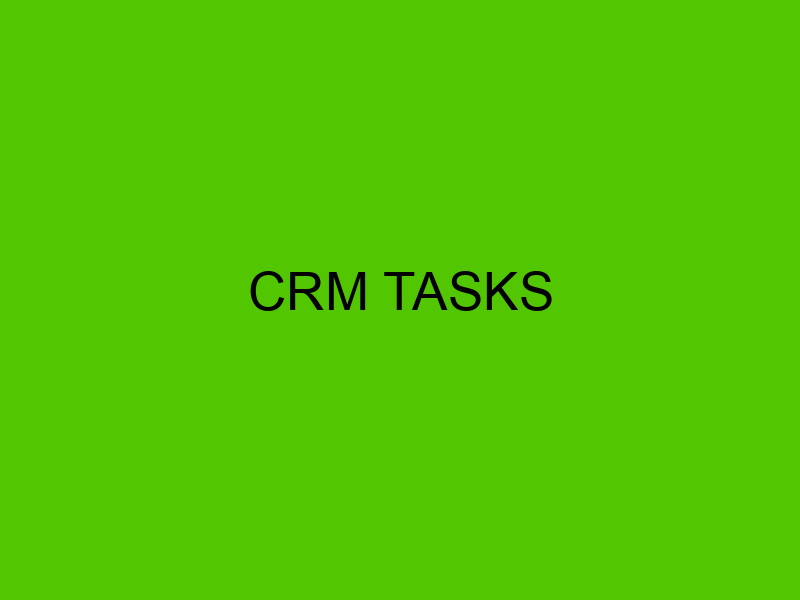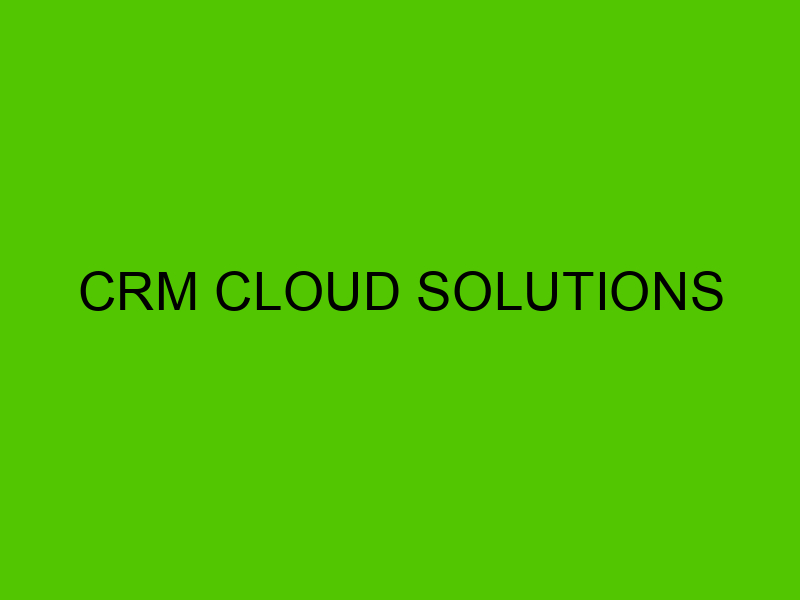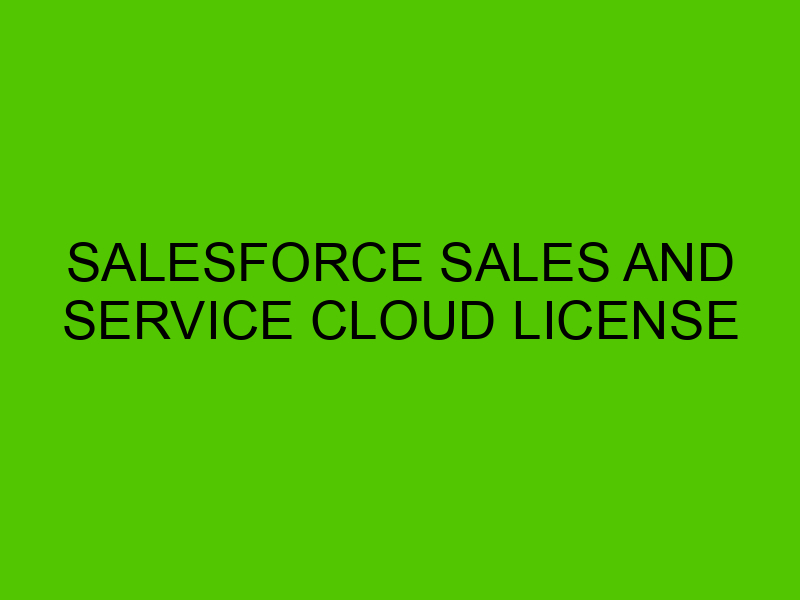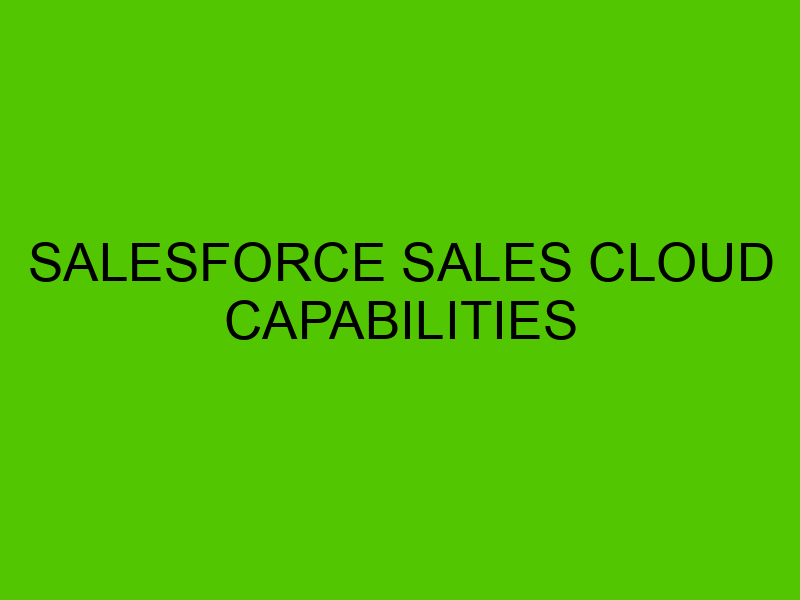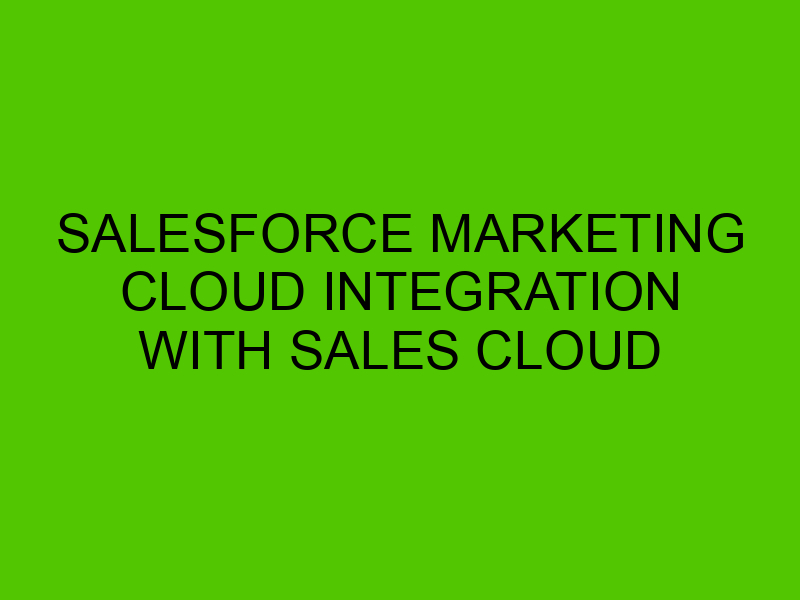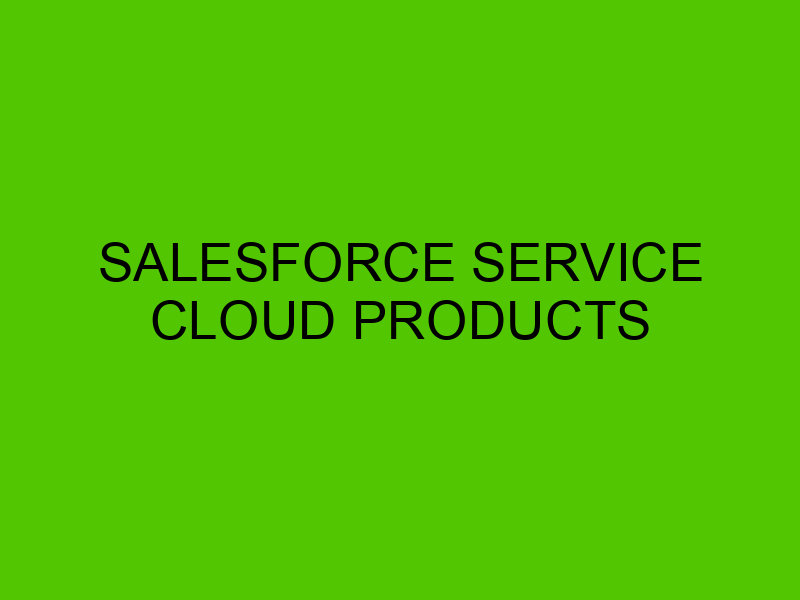Dynamics CRM Web API
Introduction to Dynamics CRM Web API
An Introduction to Dynamics CRM Web API
Microsoft Dynamics CRM is a powerful and versatile customer relationship management system that helps businesses of all sizes and industries manage their customer interactions and relationships. The Dynamics CRM Web API, part of the Dynamics 365 suite of applications, is a key component of this system that allows developers to build custom integrations and apps that leverage the power of Dynamics CRM.
Web APIs, or application programming interfaces, are a set of rules and protocols that enable software applications to communicate with each other. In the case of Dynamics CRM Web API, it provides a standardized way for third-party applications to access and manipulate CRM data, as well as perform other actions such as creating new records and updating existing ones.
One of the key benefits of Dynamics CRM Web API is that it allows businesses to easily extend and customize their CRM system to meet their unique needs and workflows. With the Web API, developers can build custom integrations that connect to other systems, such as online marketplaces, payment gateways, and shipping providers, to automate and streamline their business processes.
Additionally, the Dynamics CRM Web API provides a single, unified interface for accessing all the data stored in the CRM system, including customer data, sales data, and service data. This unified interface makes it easy for developers to create powerful applications that leverage the full range of CRM data, without having to worry about the underlying data structure or integration details.
Another important feature of Dynamics CRM Web API is its support for different authentication methods, such as OAuth2, which provide secure access to the CRM data while still allowing developers to integrate with other systems. This makes it easy for businesses to share their CRM data with external partners and service providers, without compromising security or data privacy.
In summary, Dynamics CRM Web API is a powerful and flexible tool for developers that allows businesses to extend and customize their CRM system to meet their unique needs and workflows. It provides a single, unified interface for accessing all the data stored in the system, and supports a wide range of authentication methods for secure access. With the Dynamics CRM Web API, businesses can build powerful integrations and apps that help them automate and streamline their business processes, and provide better customer experiences.
What is Dynamics CRM Web API?
Microsoft Dynamics CRM Web API is a set of RESTful Web services that allow developers to create applications that use the CRM platform’s functionality. The API provides an easy-to-use, standardized interface for accessing CRM data and executing operations on the platform, making it simpler to build custom solutions that integrate with Dynamics CRM.
The Web API provides access to all the data entities that are available in Dynamics CRM, including accounts, contacts, cases, leads, and more. Most importantly, the API can be used to read, create, update, and delete data records in Dynamics CRM, giving developers complete control over the application’s data flow.
The Web API is built on top of the OData protocol, which is a standardized way of building and querying RESTful APIs. Because of this, developers can use a variety of programming languages and frameworks, such as JavaScript, .NET, Java, Python, and Ruby, to create custom applications that interact with Dynamics CRM. The API provides both JSON and XML data formats, making it easy to consume CRUD operations on the platform.
The Dynamics CRM Web API is also designed to be highly extensible, with a wide range of customization and integration options available. Developers can use plug-ins, custom workflows, and custom actions to extend the platform’s capabilities and automate complex processes. Additionally, the API also supports cross-domain scripting, CORS, and JSONP, which makes it easier to integrate with third-party applications and services.
One of the most significant benefits of using the Dynamics CRM Web API is that it provides a consistent, reliable, and secure way of accessing CRM data. Developers can use the API to build custom applications that are tailored to their specific requirements, without having to worry about managing the underlying platform’s infrastructure. The API provides a secure and robust communication channel between the application and the Dynamics CRM platform, making it easier to protect sensitive data from unauthorized access.
In summary, the Dynamics CRM Web API is a powerful and flexible tool for accessing and managing data in Dynamics CRM. It provides an easy-to-use and standardized interface for creating custom applications that integrate with the platform. With its wide range of customization and integration options, the API can help developers unlock the full potential of the Dynamics CRM platform and deliver innovative solutions that meet their business needs.
Features of Dynamics CRM Web API
Dynamics CRM Web API is a powerful tool that allows businesses to connect their customer relationship management (CRM) systems with other systems. It is designed to make it easier for businesses to manage their customer data and automate various processes. Some of the notable features of Dynamics CRM Web API include:
1. Integration Capabilities
The Dynamics CRM Web API allows businesses to connect with other systems seamlessly. It supports popular integration protocols such as REST and OData. This means that businesses can easily integrate their CRM systems with other applications, regardless of the technology stack the other applications are built on. For instance, you can integrate your CRM system with your accounting software, ERP, marketing automation tool, or any third-party platform that supports REST or OData.
Also, with the Dynamics CRM Web API, you can create custom integrations with your business-specific applications. This will enable you to automate various processes and provide a more seamless experience for your customers and teams. This integration capability is one of the key features that make Dynamics CRM Web API stand out in the CRM industry.
2. Security
Security is critical when it comes to customer data management. Dynamics CRM Web API provides multiple security layers to ensure that your data is safe. Firstly, it leverages the security features already built into the Dynamics CRM platform. For instance, it supports authentication via Azure Active Directory, OAuth2.0, and OpenID Connect, which help keep your data secure.
Additionally, the Dynamics CRM Web API enables you to set up access rules for your data. This way, you can control who can access specific data in your CRM system. You can also use SSL encryption to secure data transmission between your CRM system and any other system that integrates with it. And with Microsoft’s standard compliance certifications such as HIPAA, HITECH, ISO 27001, and SOC 1 Type 2 & 2 Type 2, you can trust that your data is safe with Dynamics CRM Web API.
3. Customization
Another standout feature of Dynamics CRM Web API is its customization capabilities. The Dynamics CRM platform is designed with flexibility in mind, and the Web API is no exception. Businesses can customize the API to meet their specific needs easily. They can even extend the existing functionality of the API by creating custom plugins, workflows, and business rules.
With the Dynamics CRM Web API, businesses can customize virtually every aspect of their CRM system, including entities, attributes, fields, and views. They can also create custom modules to address specific business requirements. This level of customization allows businesses to tailor their CRM systems to meet their unique needs, which can significantly improve their overall productivity and efficiency. With the Dynamics CRM Web API, businesses can fully leverage their data to gain actionable insights and drive growth.
In Conclusion
The Dynamics CRM Web API is a robust tool that provides businesses with the flexibility they need to manage their customer data effectively. With native integration capabilities, advanced security features, and customization options, Dynamics CRM Web API allows businesses to create a seamless experience for their customers and teams. Plus, with Microsoft’s security certifications, you can trust that your data is safe with Dynamics CRM Web API.
Connecting to Dynamics CRM with Web API
If you want to use the Dynamics CRM Web API, the first step is to authenticate your credentials. There are many different authentication protocols that can be used – you can choose the most suitable for your needs. Below we will cover the OAuth 2.0 authentication protocol.
Step 1: To use Web API with OAuth 2.0, first you need to create an application registration in Azure Active Directory. Go to Azure Active Directory and register a new application. After registration is complete, you will be provided with a client ID and client secret. Store these values in a secure location – you will need them shortly.
Step 2: Next, create a security group in Azure Active Directory and assign your newly registered application to this group.
Step 3: In order to authenticate with the Web API, you need to obtain an access token. This access token is generated by Azure Active Directory, and you will need to use your client ID and client secret to obtain it. You can use the Azure Active Directory Authentication Library (ADAL) to handle this step for you.
Step 4: With your access token in hand, you can now call the Dynamics CRM Web API. You will need to pass your access token in the authorization header of your HTTP requests. The Web API supports JSON and OData data formats, so you can use whichever format is best suited to your needs.
Step 5: You can now start using the Web API to create, read, update and delete records in Dynamics CRM. The Web API is a REST-based API, so you will be using HTTP methods such as GET, POST, PUT and DELETE to interact with the CRM data.
In conclusion, using the Dynamics CRM Web API is a powerful way to interact with your CRM data programmatically. By following these simple steps to authenticate and connect with Web API, you can start building your own custom applications and integrations in no time.
Benefits of using Dynamics CRM Web API
The Dynamics CRM Web API is a powerful tool that can help businesses achieve their CRM goals with ease. Here are some of the benefits of using Dynamics CRM Web API:
1. Increased Productivity and Efficiency
One of the major advantages of using Dynamics CRM Web API is increased productivity and efficiency. The CRM system helps businesses automate their processes, which means that they can handle more tasks in a shorter amount of time. This results in increased productivity and efficiency, which can translate into more revenue for the business.
With Dynamics CRM Web API, businesses can automate their customer service processes, such as tracking customer interactions and responding to customer inquiries. This means that businesses can handle more customer inquiries in less time, which can help improve customer satisfaction and loyalty.
Additionally, Dynamics CRM Web API helps improve communication among team members. Teams can share information and collaborate on tasks, which can help streamline business processes and reduce errors.
2. Improved Data Management and Analysis
Dynamics CRM Web API provides businesses with a centralized platform for managing their customer data. This means that businesses can easily access customer data, update it, and analyze it to gain insights into their customers’ behavior and needs.
The platform also provides businesses with real-time analytics, which means that they can track customer interaction and engagement in real-time. This can help businesses understand the effectiveness of their marketing campaigns and customer service efforts, enabling them to adjust their strategies to improve customer engagement and satisfaction.
With Dynamics CRM Web API, businesses can also import and export data from other sources, such as social media platforms and email marketing tools, enabling them to leverage this data to improve their business operations.
3. Customized Reporting and Dashboards
Dynamics CRM Web API provides businesses with customizable reporting and dashboard features that enable them to create reports and dashboards tailored to their specific business needs.
The system provides a range of pre-built report templates that businesses can use to generate reports quickly and easily. Additionally, businesses can customize these templates or create their own custom reports to meet their specific requirements. They can also use the dashboard feature to create visualizations of their data, enabling them to better understand and track their business performance.
4. Scalability and Integration
Dynamics CRM Web API is a highly scalable and flexible system that can easily integrate with other systems and applications used by businesses.
The platform provides businesses with a wide range of integration options, enabling them to connect their CRM system with other applications, such as email marketing tools, social media platforms, and accounting software. Additionally, the system can scale up or down depending on the business’s needs, enabling them to grow their CRM capabilities as their business grows.
5. Reducing Costs and Increasing ROI
Dynamics CRM Web API can help businesses reduce their costs by streamlining their business processes, improving communication among team members, and automating their customer service processes. This can result in increased productivity, reduced errors, and lower labor costs.
Additionally, the system can help businesses improve customer satisfaction and engagement, which can translate into increased revenue and higher ROI. Customers are more likely to purchase from businesses that provide excellent customer service and personalized experiences.
Furthermore, the customizable reporting and dashboard features of Dynamics CRM Web API can help businesses identify areas where they can cut costs and improve performance, enabling them to make more informed business decisions.
Overall, using Dynamics CRM Web API can help businesses achieve their CRM goals, improve their customer service, streamline their business processes, and increase revenue and profitability.
Limited Access to Certain Features
One of the biggest challenges that developers and businesses face when using Dynamics CRM Web API is the limited access to certain features. The API is designed to provide access to a subset of the functionalities of Dynamics CRM, so there are some features that are not available through the API. This can make it difficult for developers and businesses to fully integrate Dynamics CRM with other systems or to create custom solutions that require access to specific features.
For example, Dynamics CRM Web API does not provide access to all of the workflows and plugins that are available in Dynamics CRM. This means that developers may have to find workarounds or alternative solutions in order to achieve the desired functionality. Similarly, there are some customization features that are not available through the API, such as form or field level security settings.
Another limitation of the API is that it requires users to have certain privileges in order to access certain data or functionality. This can make it difficult for developers and administrators to control access and permissions to certain features and data. It is important for developers and businesses to be aware of these limitations and plan accordingly when using Dynamics CRM Web API.
Despite these challenges, the API is still a powerful tool for developers and businesses to integrate Dynamics CRM with other systems and create custom solutions. By understanding the limitations of the API and finding workarounds when necessary, they can take advantage of its many benefits.
One potential workaround for the limited access to certain features is to use a combination of Dynamics CRM Web API and other tools, such as custom workflows or plugins. These tools can be used to achieve the desired functionality that is not available through the API. For example, a custom plugin could be created to perform a specific action on a record when a certain condition is met.
Another option is to use the API in combination with the Dynamics CRM SDK. The SDK provides additional functionality and tools that can be used to create custom solutions and extend the capabilities of the API. This can help developers and businesses overcome some of the limitations of the API and create more robust solutions.
Ultimately, the key to success with Dynamics CRM Web API is to understand its strengths and limitations, and to work within those parameters to create the best solutions possible. By combining the API with other tools and technologies, developers and businesses can achieve their desired functionality while still taking advantage of the powerful features of Dynamics CRM.
Best Practices for Dynamics CRM Web API Integration
The Dynamics CRM Web API is a powerful tool that can be used to integrate customer data from various sources into a CRM system. However, integrating the API into a business’s CRM infrastructure requires careful planning and a solid understanding of the potential pitfalls. Here are seven best practices for integrating Dynamics CRM Web API into a business’s CRM infrastructure:
1. Plan and Strategize
Prior to integrating the Dynamics CRM Web API into a CRM system, businesses must have a well-defined strategy and plan in place. This plan should outline the scope of the integration, the desired outcomes, and the resources needed to achieve success. Additionally, businesses should consider any potential risks or challenges that may arise during the integration process and factor them into their plan.
By taking this approach, businesses can ensure that they are fully prepared for the integration process and that they have the necessary resources to achieve success.
2. Authenticate Properly
Access to Dynamics CRM Web API requires proper authentication. In order for the API to work properly, businesses must ensure that they have authenticated properly with the API. This can be achieved through proper token management and user authentication. Additionally, businesses should consider the use of solutions like Azure Active Directory, which provides an easy-to-use single sign-on solution for authenticating users.
By properly authenticating with the Dynamics CRM Web API, businesses can ensure that only authorized users can access their CRM data, which helps protect customer privacy and prevent unauthorized data breaches.
3. Implement Security Measures
Security is another critical consideration when integrating the Dynamics CRM Web API into a CRM system. Businesses should ensure that they implement appropriate security measures to protect their data from unauthorized access. This can involve implementing measures like firewalls, encryption, and access controls.
By implementing these measures, businesses can help protect customer data and ensure that they comply with all relevant privacy regulations.
4. Optimize Queries for Performance
As with any type of API integration, businesses should take care to optimize their queries for performance when integrating the Dynamics CRM Web API. This can involve using strategies such as caching and pagination to improve performance and reduce the load on servers.
By optimizing queries for performance, businesses can help ensure that their CRM system operates optimally and that they can process large volumes of data without experiencing performance issues.
5. Update Consistently
Additionally, businesses must keep their CRM data up to date by updating it consistently. This can involve integrating automated data updates and making sure that users understand the importance of keeping customer data up to date.
By updating data consistently, businesses can help ensure that their CRM system contains the most up-to-date information on their customers, which can improve customer relationships and drive business success.
6. Monitor and Review Regularly
Businesses should monitor and review the performance of their Dynamics CRM Web API integration on a regular basis to ensure that it is performing optimally and meeting their needs. This can involve setting up alerts that notify administrators when errors or performance issues arise and reviewing logs and other monitoring data to identify potential problems.
By monitoring and reviewing the integration regularly, businesses can spot potential issues before they become major problems and take action to resolve them before they cause significant damage.
7. Continuously Improve
Finally, businesses should continuously improve their Dynamics CRM Web API integration by actively seeking out ways to optimize it and enhance its performance. This can involve leveraging new technologies and techniques, seeking out user feedback, and soliciting input from experts and other stakeholders.
By continuously improving their integration, businesses can help ensure that their CRM system is always up to date and that it is delivering maximum value to their customers and stakeholders.
Conclusion
In conclusion, the Dynamics CRM Web API offers a plethora of benefits for businesses seeking to streamline their CRM strategies. By allowing for easy communication between Dynamics CRM and other applications, businesses can access and analyze important customer data in real-time, resulting in quicker decision-making and increased efficiency. Additionally, the Web API’s user-friendly interface makes it easy for developers to incorporate CRM functions into new and existing software without extensive training.
Given these benefits, it’s clear that businesses across all industries should start utilizing Dynamics CRM Web API in their CRM strategies. Whether you’re a small business looking to improve customer relations or a large corporation seeking to optimize interdepartmental communication, the Web API can help. By providing a platform that integrates with other systems/technology solutions, businesses can pull relevant information from all touchpoints and centralize client data, for making it easier than ever to serve and retain customers.
In addition, Dynamics CRM Web API enables businesses to automate processes and workflows that were previously time-consuming and frustrating. By using Reporting and Analytics Functionality, businesses can not only get insights on their customers, but they can use these insights to create new market strategies that improve the customer experience. Automating a Sales Funnel increases the speed of following up with leads, providing tailored communication with leads and keeping track of conversations with leads/customers that lead to a complete view of the customer life-cycle.
The integration of Dynamics CRM Web API is also tailored to assist businesses in improving their customer relationship management strategy. With easy integration within several applications, businesses can keep track of optimal communication channels/pathways for their customers, storing information on every meaningful interaction and analyzing it to provide insights on improving customer satisfaction. The Web API provides a complete view of all customer data across all departments. This centralization not only streamlines decision-making processes but also provides access, customization, and tailor-made reports to suit your specific business needs, something that will benefit businesses looking to grow and optimize their communication channels.
Finally, with competitors moving increasingly towards digital transformation, Dynamics CRM Web API provides a competitive edge over those businesses still reliant on manual methods or simple software integrations. By being able to harness the power of big data and analytics, businesses can improve their service delivery, acquire and retain more customers, and stay ahead of the competition by tailoring products and services to meet specific customer needs. It’s time for businesses to embrace digital transformation as the leading trend to improve business efficiency and provide high-quality customer experiences.
In conclusion, Dynamics CRM Web API provides businesses with an efficient and streamlined method of managing their customer relations. The benefits of utilizing this technology are numerous, including improved communication, customer service, automation, and competitive advantages. Businesses must prioritize integration as it offers a chance for optimization, growth, and maintaining meaningful customer relations that stand the test of time. The future of CRM is digital, and Dynamics CRM Web API provides the tools businesses need to succeed.


